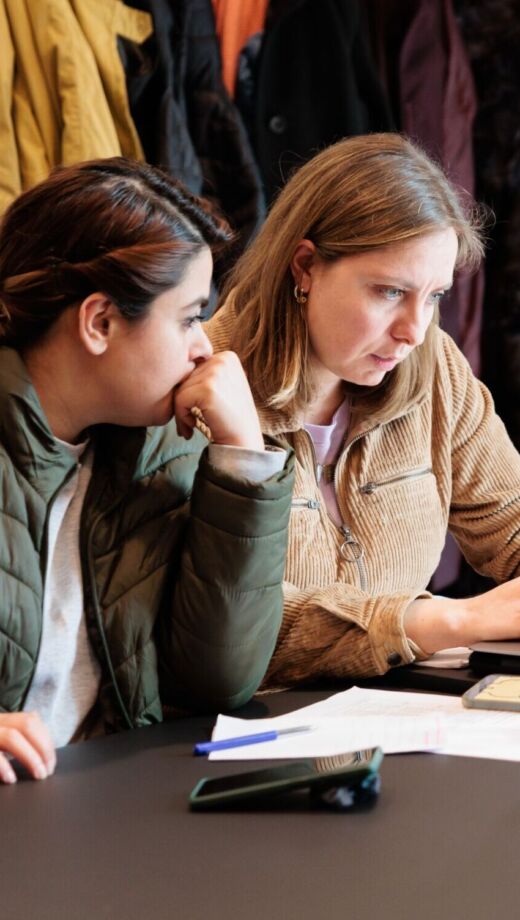
Rough Cut Service
This year, Movies that Matter is organising its annual Rough Cut Service for the fifth time! Several documentary projects from around the world are selected for the Movies that Matter Rough Cut Service 2025. They all address relevant and urgent topics and issues with great cinematic and narrative storytelling.
Selected projects will receive tailored feedback during the festival days by our partners Sigal Yehuda (Close Up), Sergi Doladé (MEDIMED), Susan Mbogo (DOCUBOX), Alex Szalat (Docs Up Fund), Rada Sesic (Docu Rough Cut Boutique) and Jan Rofekamp (Films Transit).
All projects are eligible for the The Docs Up Fund Award.
Selected Projects
-
Director: Serif Cicek
Writer: Fiona tho Pesch
Editors: Thomas Balkenhol
Producer: Fiona tho Pesch
Production Company: N/A
Countries of Production: Germany, Greece
Production Status: In Production
Expected Release Date: November 2025
(Estimated) Final Length: 90 minutes
Shooting Language: Kurdish, Turkish, GreekSynopsis:
Hevîya Lavrio tells the story of a unique self-organized Kurdish refugee camp in Greece, now evicted, through the eyes of Vedat, a journalist who introduces us to its residents. We meet Jihan, a young boy fleeing with his family, Erkan, a former Turkish politician organizing the camp, and Dilan, who has lived there for over 20 years, preserving its history. The documentary captures the eviction’s impact, showing refugees struggling with worsening conditions in state-run facilities. Blending past and present, it highlights themes of resistance, solidarity, and the enduring fight for autonomy.Director’s Statement:
As a politically engaged Kurd in exile, I have a deep connection to the struggles of those on the run, especially in the face of rising anti-migrant sentiment in Europe. Lavrio has long been a symbol of Kurdish solidarity and self-determination, and after witnessing its unique spirit firsthand, I felt compelled to document its story. Following the camp’s eviction in 2023—amid pressure from Turkey—I began researching its history, gathering archival footage, and interviewing those affected. Through intimate storytelling and historical analysis, this documentary aims to highlight the power of self-organization and the urgent need for solidarity with displaced communities.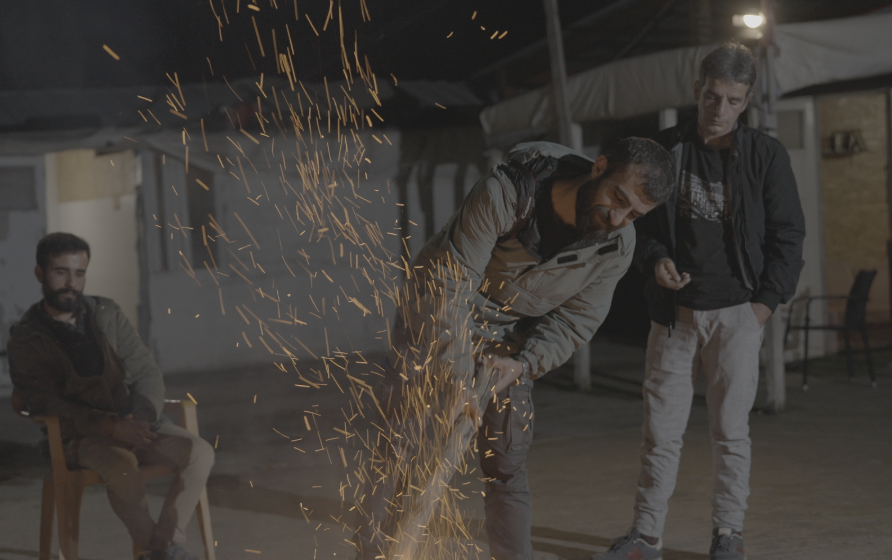
Still from Hope of Lavrio -
Director: Tamar Kalandadze, Julien Pebrel
Writer: Tamar Kalandadze, Julien Pebrel
Editors: François Sculier
Producers: Ketevan Kipiani, Jean-Baptiste Bonnet
Production Company: Sakdoc Film, Habilis Productions
Countries of Production: Georgia, France
Production Status: Post-production
Expected Release Date: August 205 (Estimated)
(Estimated) Final Length: 90 minutes
Shooting Language: GeorgianSynopsis:
Kartli follows the lives of refugees from the 90s civil wars, living in a crumbling sanatorium split by a fault. Though the building is doomed, the residents—descendants of those expelled from Abkhazia—have created their own “country,” complete with a farm, garden, and a space for memories, as they replay old VHS tapes of their youth. The film weaves the trauma of exile and the strength of community through characters like Tamuna, Irma, and others, capturing both the sadness of a lost paradise and the resilience of togetherness. Amid struggles for rehousing and the devastating loss of a community member, the film explores the deep bonds formed in shared exile and the difficult decision to leave a place that has become home.Directors’ Statement:
Two of Us is a collaborative film that blends two perspectives into a shared vision, shaped by extensive discussions and mutual influence. Our roles naturally interchange, with one handling the camera and the other sound, creating a fluid approach that mirrors the intuitive framing of the film. Through the confined spaces of Kartli, captured in the 4/3 format, the film weaves together the community’s past, present, and imagined future, blending layers of memory, humor, and struggle. Archival footage, spontaneous narratives, and intimate moments of daily life reveal the essence of this community, documenting both joy and hardship, culminating in the tragic events that disrupt the fabric of Kartli’s present.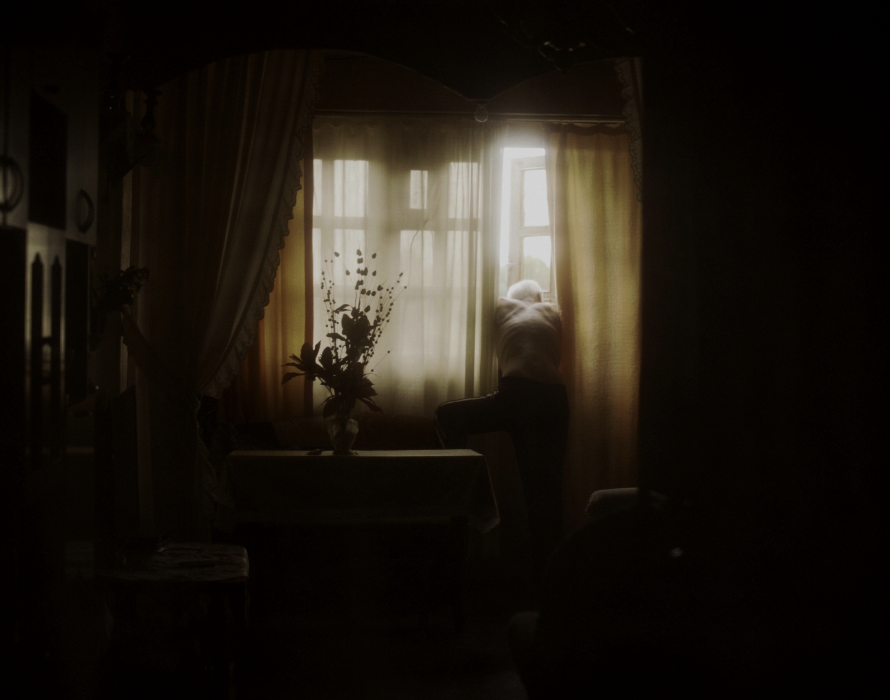
Still from Kartli -
Director: Ana Kvichidze
Writer: Ana Kvichidze, Avtandil Khorava
Editors: Joelle Alexis, Eka Tsotoria (The cut we are sending is edited by Eka Tsotsoria)
Producer: Avtandil Khorav
Production Company: Moonbow Productions, 17/07 Productions, Les films D’ici, Parabellum films, MUrman Picture.
Countries of Production: Georgia, France, Germany
Production Status: Rough Cut Stage
Expected Release Date: Early 2026 (Estimated)
(Estimated) Final Length: 90 minutes
Shooting Language: GeorgianSynopsis:
In a small, mountainous Georgian town, Dachi (they/them), a 19-year-old transgender woman, faces rejection from both their family and community under the influence of the deeply religious Archbishop Stephen. Despite the harsh treatment and attempts to “cure” them, Dachi finds solace in their friendship with 84-year-old Vardo, a former healer, and discovers ancient magic tied to the town’s sacred Mother Tree. As Dachi begins performing rituals and challenging the oppressive beliefs of their town, their defiance meets growing hostility. Ultimately, Dachi leaves Lechkhumi in search of a place where they can truly belong, but their legacy lives on as Mariam, once a follower of Stephen, continues to honor the Mother Tree and carry forward their story of quiet rebellion.Director’s Statement:
My love for magic, influenced by my grandmother, connects me to Dachi, the heart of my film. Dachi, rejected by their conservative society for their identity and beliefs, finds solace in magic and a deep friendship with Vardo, an 84-year-old spellcaster. Together, they navigate a world of rejection, but even Vardo’s care can’t fill the void of societal denial. In search of belonging, Dachi decides to leave Lechkhumi, marking the film’s emotional conclusion, as it explores survival, resilience, and the quest for acceptance.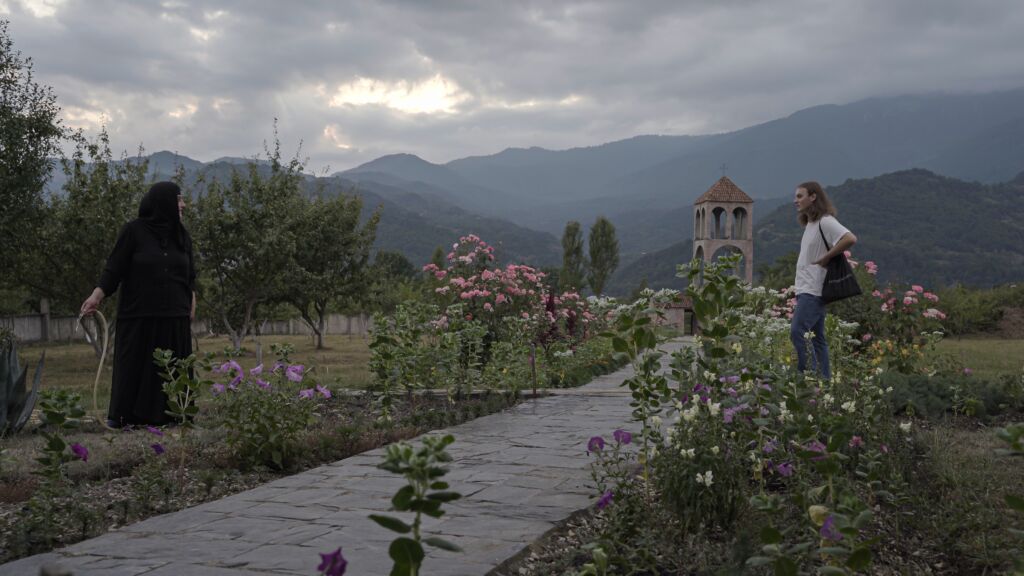
Still from Oh, Heart Don’t be Afraid -
Director: Meital Zvieli
Writer: Meital Zvieli
Editors: Meital Zvieli
Producer: Avigail Sperber
Production Company: Pardes Productions
Countries of Production: Israel
Production Status: Post Production
Expected Release Date: January 2026
(Estimated) Final Length: 90 min
Shooting Language: Hebrew, Arabic, FrenchSynopsis:
Shalom the Rhinoceros, the beloved “King of the Herbivores” at Jerusalem’s Biblical Zoo, spends his final days in decline before a gnu attack forces a painful debate over euthanasia. Ultimately, the chief veterinarian decides to end his suffering, leaving his caretakers, Rushdi and Gilad, at odds over what was right. Amidst a war with Gaza, Rushdi travels to France to escort a new rhino, Eno, to Jerusalem, questioning the ethics of captivity. When the zoo renames Eno for marketing purposes, it sparks deeper reflections on identity, belonging, and the true meaning of freedom.Director’s Statement:
Walls and fences have fascinated me since childhood, shaping my understanding of separation and security in Israel. Visiting Jerusalem’s Biblical Zoo while making my last film, I saw a parallel between caged animals and Palestinians confined by security barriers—both illusions of autonomy. Shalom, an elderly rhinoceros, symbolized hope, as he was equally loved by his Palestinian and Israeli caretakers despite their divisions. Through his story, I explore the barriers that divide us and my belief that one day, we can break them down for the sake of true peace—shalom.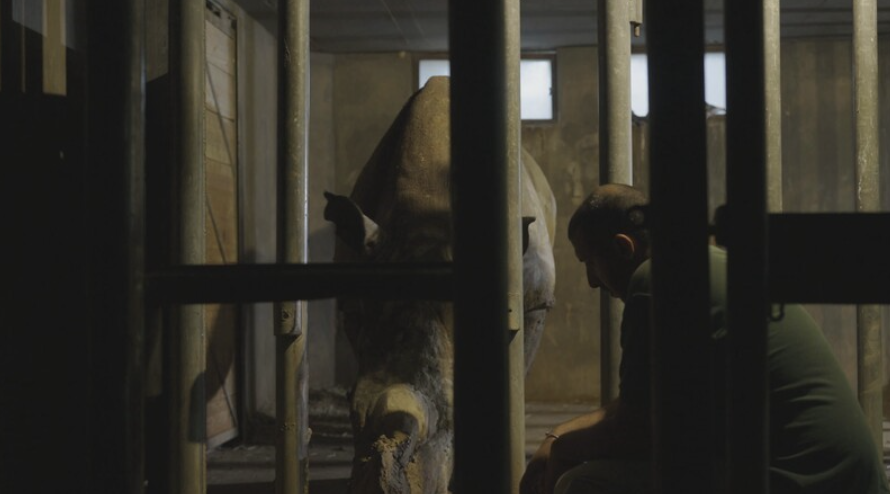
Still from A Rhino Tale -
Director: Kelvin Osoo
Writer: Danny Skilton
Editors: Benjamin Owuor, Michelle Mithigani, Kelvin Osoo & Danny Skilton
Producer: Kelvin Osoo & Brandon Wema
Production Company: Different Dimension Productions
Countries of Production: Kenya
Production Status: In Post-Production
Expected Release Date: August (Estimated)
Final Length: 105 mins
Shooting Language: SwahiliSynopsis:
We the People follows Lichuma, a passionate activist from Nairobi’s Mathare slums, as he joins Gen-Z protesters against a punitive finance bill and mass home demolitions. Initially peaceful, the demonstrations turn violent as law enforcement responds with tear gas, water cannons, and live ammunition. Lichuma witnesses the devastating toll—lives lost, youths abducted, and many missing—yet the protesters remain determined to reclaim their power. Through raw footage and intimate interviews, the documentary captures their resilience, with Lichuma emerging as a symbol of hope in the fight for justice.Director’s Statement:
The documentary stemmed from my firsthand experience protesting Kenya’s punitive finance bill and facing unexpected police brutality. This encounter pushed me to assemble a team and document the movement, leading me to Lichuma, whose courage and resilience became the heart of the film. Through grassroots connections, we gained authentic access to activists, ensuring their voices remained central to the narrative. Our deep involvement—attending protests, meetings, and daily struggles—allowed us to capture raw, genuine moments that highlight the fight for justice.
Still from We The People
Newsletter
Do you want to stay up to date with all Movies that Matter news, promotions and special screenings? Sign up for our newsletter (in Dutch).
Subscribeto our English Industry newsletter or Educational newsletter (in Dutch) here